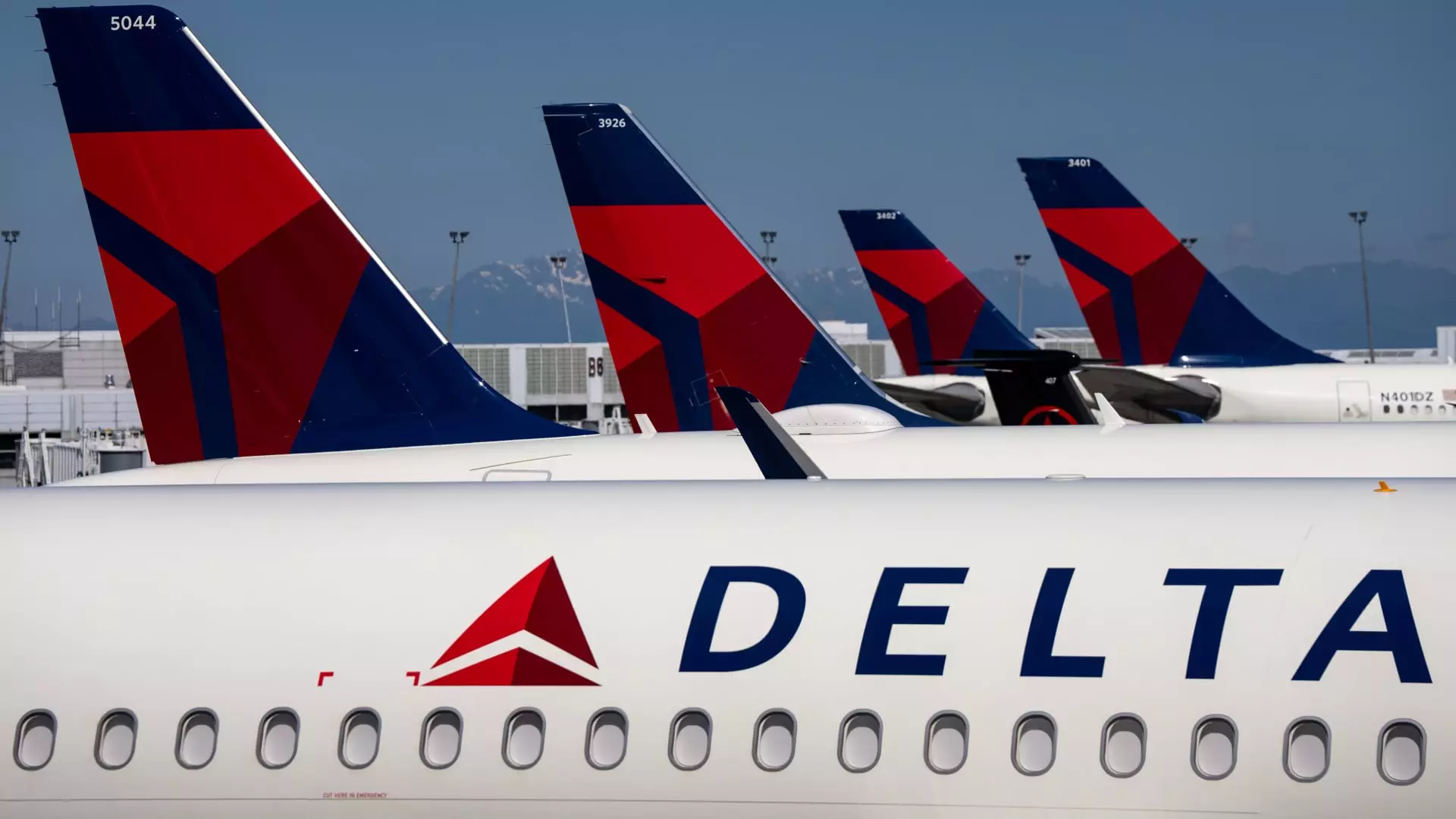In a remarkable turn of events, Delta Air Lines is refraining from extending its flying capacity as anticipated in the latter half of the fiscal year. The unforeseen slump in bookings, heavily influenced by President Donald Trump’s erratic trade policies, has compelled CEO Ed Bastian to voice his concerns and label the current approach as “the wrong strategy.” Delta’s projection for second-quarter revenue growth came in disappointingly shy of expectations, forecasting only a potential increase of two percent at best, a stark contrast to Wall Street’s optimistic estimate of 1.9% growth. As the airline grapples with fluctuating travel demand, it is evident that external economic pressures are taking a toll on what was once considered a promising financial landscape.
Disruption in Travel Demand
Delta’s proactive stance in announcing adjusted earnings per share between $1.70 and $2.30 reveals a disconnect between corporate ambitions and market realities. Analysts had earlier estimated a more favorable figure of $2.23, prompting skepticism about the airline’s ability to navigate these turbulent times effectively. After a brief period of optimism at the beginning of the year, which saw Bastian predicting 2025 to be the “best financial year in our history,” recent developments have cast a shadow on that outlook. Particularly alarming is the sharp decrease in both corporate and leisure travel demand, as companies reassess their travel budgets amidst profound economic uncertainties. This downturn is not isolated; it speaks to a broader trend of declining consumer confidence, which Bastian noted has notably diminished over the last six weeks.
Impact of Trade Policies on Flight Capacity
The shifting trade policies of the current administration appear to have initiated a ripple effect on the airline industry. Throughout the first quarter, Delta experienced a tangible slowdown after what seemed to be a robust growth trajectory of 10% in travel demand. As business trips come into question and governmental workforce reductions are enacted, the air travel sector finds itself bracing for continuous impact. International and premium travel segments have shown resilience, but core travel bookings have faltered, reflecting a broader hesitance from consumers to commit to travel plans.
While Bastian previously highlighted the regulatory changes proposed by the Trump administration as a “breath of fresh air” for the airline industry, it is now apparent that an evolving economic landscape is demanding caution. Delta initially projected a 3% to 4% increase in flying capacity for the second half of the year, but these plans have since been shelved as the airline opts for a flat capacity year-on-year. Such a strategic pivot underscores Delta’s intention to protect its financial margins by prioritizing control over growth in tandem with the uncertain global economic environment.
Market Reactions and Analyst Outlook
Wall Street’s reception of Delta’s financial outlook has been expectedly muted, as analysts have revised their earnings estimates downward for various airlines, citing emerging fears about demand stagnation. Investment firms, such as TD Cowen, anticipated that Delta’s decision would be just the beginning of a series of capacity reduction announcements from other major airlines. Bastian has aptly described the current economic landscape as a “slower-growth environment,” signaling that a cautious approach is essential if Delta is to maintain stability.
The data for the first quarter offers a contrasting storyline. Delta’s net income surged to $240 million—a major leap from $37 million the previous year—with revenue climbing by 2% year-over-year to $14.04 billion. However, these figures are now overshadowed by the looming uncertainties. The airline’s performance, while better than anticipated against some benchmarks, is not enough to quell concerns about the future and the broader implications of economic trends on consumer spending.
As Delta braces itself for a challenging fiscal landscape, the airline’s leadership will undoubtedly need to recalibrate strategies not just in response to immediate market conditions, but also the evolving geopolitical dynamics that continue to impact travel, trade, and consumer confidence. The turbulence may be just beginning, but how Delta reacts will determine its resilience in an increasingly unpredictable market.


Leave a Reply